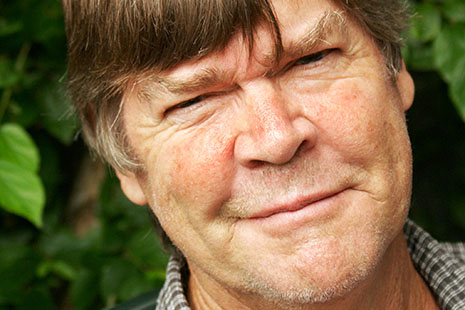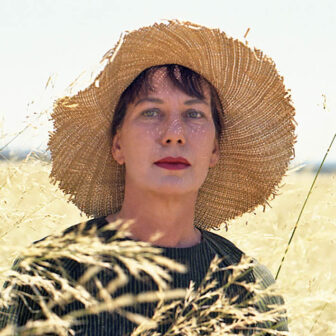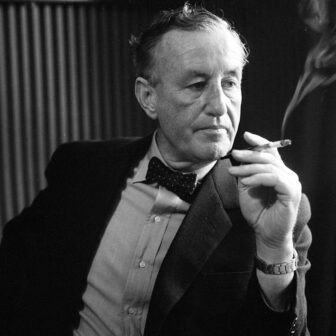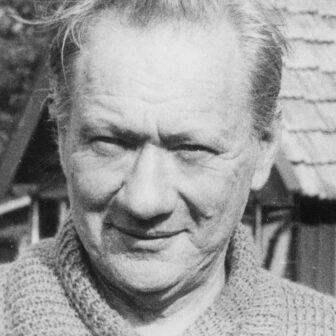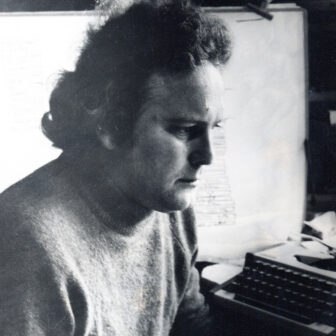First published April 2009
I dunno about the rest of you, but I was a bit wary of this Cliff Hardy bloke at first. He struck me as a bit too, well, Sydney. You know what I mean — a bit of a flash in the pan, yet another spiv pretending to be one of the blokes for as long as it takes to relieve you of your readies.
Which just goes to show how wrong a man can be. Thirty-four books later and he’s still at it. And still as Sydney as ever. And they are different in Sydney, aren’t they?
It’s not just that “if you don’t live in Sydney, you’re camping out” hubris. Not just the logjam traffic and the surf and the Sleaze Ball. Not just the giant cockroaches and the bent coppers named “Chook,” and Jonesy and Lawsy and Nifty and the Mr Bigs and Mr Sins and the Carlottas and the NSW Right. Not just the weird convergences, the rampant poovery cheek-by-jowl with hose-downable hotels, the glint of water around every corner and the rugby thugs with their necks like Moreton Bay figs and the Lebbo homies and the old men with bare leathery chests walking fox terriers across the wet sand at dawn as the sun comes up over the Pacific like a flaming ball of kebab fat.
It’s all of that, of course, its soundtrack amplified by the swarming and pulsating of 4.5 million humidity-fevered, real-estate maddened, thonged and singletted human beings.
But from somewhere in all that din come the footfalls of a lone man staggering down a back lane in Glebe — a man with the sour taste of yesterday’s Tooheys in his mouth and the ring of deliberate lies in his ears. A man who has been bludgeoned and coshed and bashed and biffed and set up, who has been fucked with and fucked over and, when he manages to get lucky, sometimes just plain fucked.
And as he catches his breath against the ramshackle back fence of the only unrenovated knocking shop left in the old neighbourhood and tilts his head back and draws a deep lungful of the fetid, corruption-stinking air, we glimpse his beaten-up but not beaten-down features and we recognise them as surely as we would recognise the silhouette of the Opera House or the coathanger profile of the Harbour Bridge, for we know this man of old, this Cliff Hardy.
For some of us, remembering the 1985 film of The Empty Beach, the third of Peter Corris’s Cliff Hardy novels, the face of Cliff Hardy perforce belongs to Bryan Brown, yet another archetypical Sydneysider. That lean, tensile build, that face so craggy and, well, cliffy that it looks like it should have grappling hooks permanently embedded in it, that laconic tone of voice like Chips Rafferty sharing his last smoke with a cobber as he bleeds to death in some far-flung foxhole.
But to see Cliff Hardy as Bryan Brown is, I believe, to get things in the wrong order. To confuse cause with effect. For it is not Brown who embodies Hardy but Hardy who animates Brown so that whenever we see that face, in Two Hands, say, or Cactus, we feel he should be behind the wheel of Cliff Hardy’s everlasting Falcon, or blinking in the sudden sunlight as he comes out of the Darlinghurst cop shop, rubbing the back of his neck, his thirst poised for quenching.
Cliff Hardy has moved on since those days, of course. He is, after all, no spring chicken. He served in the army in the Malayan Emergency, which makes him somewhere in the neighbourhood of seventy. But he remains a hard bloke to kill. In his latest case, Deep Water, he has a coronary occlusion and a quadruple bypass, gets punched in the kidney and knocked unconscious, listens to a best of Cold Chisel album, drinks copious quantities of alcohol, has two bouts of vigorous sex and solves a brace of murders.
Stripped of his private detective licence and mourning the murder of his lover, he’s been in the United States helping a boxer mate prepare for a title fight. Felled by a heart attack in San Diego, he is approached by his nurse, an expat Australian, to help her solve the disappearance of her father, a geologist working for a secretive energy corporation. Back home, he works the case in an unofficial capacity, enlisting his daughter Megan and her PI boyfriend Hank the Yank. The missing man, he discovers, had found a way to tap into the Sydney aquifer. With massive potential for profit at stake, crime and corruption raise their ugly heads. New threats and old enemies conspire. But the chase, and the flame of romance with his client, puts the lead back in old Cliff’s pencil.
This is bedrock Hardy, familiar and solid. But it is that very familiarity that constitutes Corris’s great achievement, for it was he who got there first, who staked out the ground and laid the foundations on which all subsequent Australian crime fiction has been constructed. Before him, the closest thing we had to modern novels were the wham-bam-thank-you-ma’am pastiches of Carter Brown, transplanted fantasies of an American urban jungle. Since Corris, anything has been possible.
Corris was an academic, a lecturer in Pacific history at Melbourne University. It was a career that he loathed with a vengeance. In the mid seventies, he bit the bullet, moved to Sydney and survived on freelance journalism and book reviews while working on his first novel. The Dying Trade was published in 1980 and Cliff Hardy was set loose upon the streets of Surry Hills.
But the mean streets, as Raymond Chandler famously called them, are also recognisable streets. In them, Hardy is at home. The urban and suburban milieu through which he travels on his dogged quest for the truth — and maybe even a little justice — is not the anonymous and atomised geography of some Big Nowhere. It is a well-savoured city, a place whose peculiarities and history are appreciated by our hero, even as he detests what is happening within it.
And so what Ian Rankin does for Edinburgh and Donna Leon does for Venice, Corris does with an on-the-money specificity for Sydney. Not just the topography but the social geography:
The street was a bit back from New South Head Road and elevated, so that the houses had a view of the water with the trees of the Royal Sydney golf course off to the south… The adjoining townhouses were quiet — professionals out earning enough to live there.
But place, while necessary, is not sufficient. In any series as enduring as this, it is the character of the protagonist that keeps the readers coming back.
Cliff Hardy is no anguished soul, no driven avenger, no flippant cynic or cool careerist. If anything, he’s a bit of a dinosaur. An old-school working-class male with a bred-in-the-bone detestation of the smooth operators and corner cutters from the big end of town. His most conspicuous quality is a capacity to absorb a constant diet of physical violence. His standard modus operandi is to ask a question, get clobbered, ask some more questions, get shot. Eventually the bad guys get sore fists or run out of bullets. The cops are unhelpful at best, often obstructive and sometimes corrupt. His clients are often well-heeled but the only kickbacks he ever gets are of the in-the-teeth variety. Poor Cliff has been poleaxed so many times that it’s a wonder he’s not taking his meals through a straw.
This fearlessness is driven by a sense of ethics rooted in a sense of the fair go, a bloody-minded unwillingness to let bastards rule the roost.
His job comes naturally to him. It is a calling, not a career. Even now, with his licence cancelled and his body beginning to fail him, he is grateful when given the opportunity to return to the fray.
I’d done it for more than twenty years. It was work I enjoyed, mostly, and which I’d done well, mostly. I hadn’t come up with any ideas on how to occupy myself for the rest of my life, which, according to the medicos, was a good stretch if I looked after myself.
He might be something of a throwback, but he does keep up. When he remarks that a building is laying down a fair carbon fingerprint, his young partner falls for it.
“Footprint, Cliff, footprint.”
Writing is a visceral process and Corris has never hidden the connection between his writing and his battles with alcohol and diabetes. Yet over a period of four decades he has generated a prodigious body of work. As well as the Cliff Hardy series, he has published historical and young adult fiction, eight novels set in the 1940s featuring private eye Richard Browning, the Ray “Creepy” Crawley espionage series, the three-book Luke Dunlop series, a biography of Fred Hollows, and books on golf and boxing. And while he is not in any immediate danger of winning the Nobel Prize for literature, he serves his readers well and never takes them for granted. Deep Water is assured and entertaining, doling out the customary ration of sex, violence and death, but leavening it with a deft and good-humoured portrait of a man refusing to grow old gracefully.
Chandler, writing of his archetypal hero, said: “If there were enough like him, I think the world would be a very safe place to live in, and yet not too dull to be worth living in.”
Sounds like Cliff Hardy to me. And Peter Corris, for that matter. •
